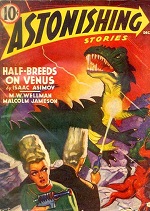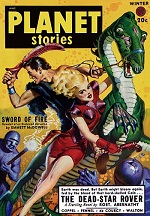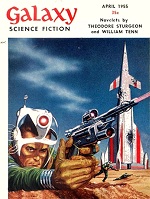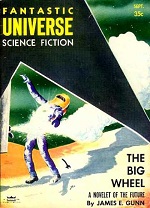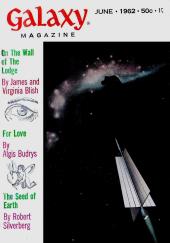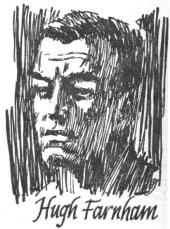Short Story
Trouble in Time
- by Frederik Pohl and C. M. Kornbluth
- in Astonishing Stories, December 1940
I enjoyed this early effort from the two young Futurians, especially the beginning where chemical engineer Mabel Evans of Colchester, Vermont, goes to visit the newly arrived mad scientist who offers her ethyl alcohol and a trip to the future.
That was approximately what Stephen had said, so I supposed that he was. “Right as rarebits,” I said.

